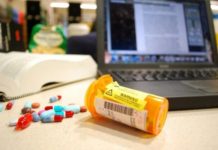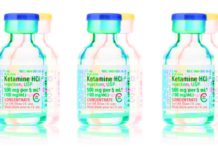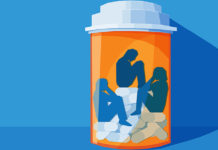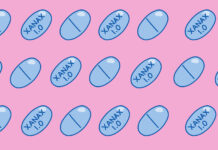Mental Health Professionals Critique the Biomedical Model of Psychological Problems
While a great deal of the excitement about advances in psychological treatments comes from the potential for research in neuroscience to unlock the secrets of the brain, many mental health experts would like to temper this enthusiasm. A special issue of the Behavior Therapist released this month calls into question the predominant conception of mental illnesses as brain disorders.
Hallucinations Reported as Side Effect of ADHD Medication
Hallucinations and other psychotic symptoms have been reported after methylphenidate (Ritalin) treatment for ADHD.
Belongingness Can Protect Against Impact of Trauma, Study Suggests
A new study explores feelings of belongingness as a protective factor for childhood trauma and adult mental health outcomes.
Systematic Review Finds Antidepressant Withdrawal Common and Potentially Long-lasting
Prominent researchers conduct a review of antidepressant withdrawal incidence, duration, and severity. Results lead to call for new clinical guidelines.
Identifying Psychiatric Drugs Leading to Emergency Room Visits
More than ten-percent of adults in the United States are currently prescribed at least one psychiatric medication but there is currently a lack of research on the prevalence of adverse drug events (ADEs) associated with these prescriptions outside of clinical trials.
Young Transgender Women Burdened with High Rates of Psychiatric Diagnoses
New research published in JAMA Pediatrics reveals that transgender women have more than double the prevalence of psychiatric diagnoses than the general US population. The study found that the women, who had been assigned male at birth and now identified as female, had a high prevalence of suicidality, post-traumatic stress disorder, substance abuse, generalized anxiety and major depressive disorder.
Daughter of a Psychiatrist
Here I was, 15 years old and already in a long-term treatment facility. I was, on paper: crazy! This entire time, all the adults in my life had been speaking for me. I never felt like I was any of the things they said, but I went along with it. What else could I have done? Every time I rebelled, it only confirmed to my mother what she thought of me.
New Study Examines User Experience of Discontinuing Psychiatric Medications
Researchers find that support and self-care were helpful for users during discontinuation, but that mental health professionals were not very helpful.
The ADHD Drug Abuse Crisis on College Campuses
The abuse of ADHD drugs on college campuses has reached epidemic proportions, according to the authors of a recent review in the journal of Ethical Human Psychology and Psychiatry. ADHD drugs, like Ritalin and Adderall, have become so commonplace on college campuses that students abusing these drugs for studying, weight loss and partying have underestimated their risks. As a result, we have seen exponential increases in emergency room visits, overdoses, and suicides by students taking these drugs.
Stimulant Drugs Have Adverse Effects on Cognitive Functioning in Healthy Students
Study of students without an ADHD diagnosis finds that stimulants (Adderall) have little impact on cognitive performance.
Mobile Apps for Mental Health Lack Transparency in Data Sharing
Research illustrates privacy concerns with how mental health applications collect and share users’ data.
Researchers Find Inadequate Reporting of the Dangers of Ketamine Treatment for Depression
Researchers report that dangerous side effects are not being adequately reported in the trials of ketamine for depression.
Quitting Smoking May Help with Depression
A new study suggests that smoking cessation is related to depressive symptom improvement, but that depression may also make it harder to quit.
Parent Marijuana Use Associated With Substance Use in Children
A new study examines longitudinal, intergenerational patterns associated with marijuana use.
Ketamine for Harmful Drinking: A Look at the Data
New research contends that ketamine can reduce problematic alcohol use but does the data support the claims?
Most People with Common ‘Mental Disorders’ Get Better Without Treatment, Study Finds
A new study suggests that most people diagnosed with depressive, anxiety, and substance abuse disorders recover without treatment within a year of diagnosis. “This...
Rates of ADHD Diagnosis and Prescription of Stimulants Continue to Rise
Two new articles find that rates of ADHD diagnosis and stimulant prescription continue to rise all over the world.
Emotional Child Abuse Just as Harmful as Physical Abuse
Different types of child abuse have equivalent psychological effects, according to a study in JAMA Psychiatry. It has previously been assumed that emotional and verbal abuse could have different or less harmful impact on a child’s psychology than physical or sexual abuse, but research now suggests that these forms of abuse can be just as damaging.
Anatomy of an Opioid Epidemic
Long-term opioid prescribing has not only been shown to not be helpful for chronic pain; it in fact worsens pain by repeatedly causing tolerance and withdrawals (the main symptom of which is pain). This is analogous to how psychiatric drug use, though often helpful initially, ultimately can cause people to become chronically “mentally ill.”
Rates of Opioid Use Remain High Among US Adolescents
Researchers investigate trends in opioid use, prescriptions, misuse, and access reported by adolescents and young adults.
Researchers Ask, ‘Why Do Antidepressants Stop Working?’
An international group of researchers, including several with financial ties to manufacturers of antidepressants, explore possible explanations for why long-term users of antidepressants become chronically depressed.
Despite “Flurry of Interest,” Ketamine Remains Unproven For Depression
In 2014, then National Institute of Mental Health (NIMH) director, Thomas Insel, speculated that ketamine “might be the most important breakthrough in antidepressant treatment in decades.” A recent review of the research suggests that while ketamine may produce a rapid short-term improvement in depression, the effect is short-lived and the potential for addiction and dependence warrants considerable caution.
Researchers Identify Patterns in Antidepressant and Long-Term Benzodiazepine Use
The researchers found that, of those who were initially prescribed both antidepressants and benzodiazepines, approximately 12% went on to engage in long-term benzodiazepine use.
Youth-Nominated Social Support Reduces Mortality for Suicidal Adolescents
The Youth-Nominated Support Team intervention invites adolescents to select adults in their life to receive training on how to support them.
What Stops People From Using Exercise to Treat Depression?
New research examines important factors of adherence when prescribing exercise to treat depression.



























